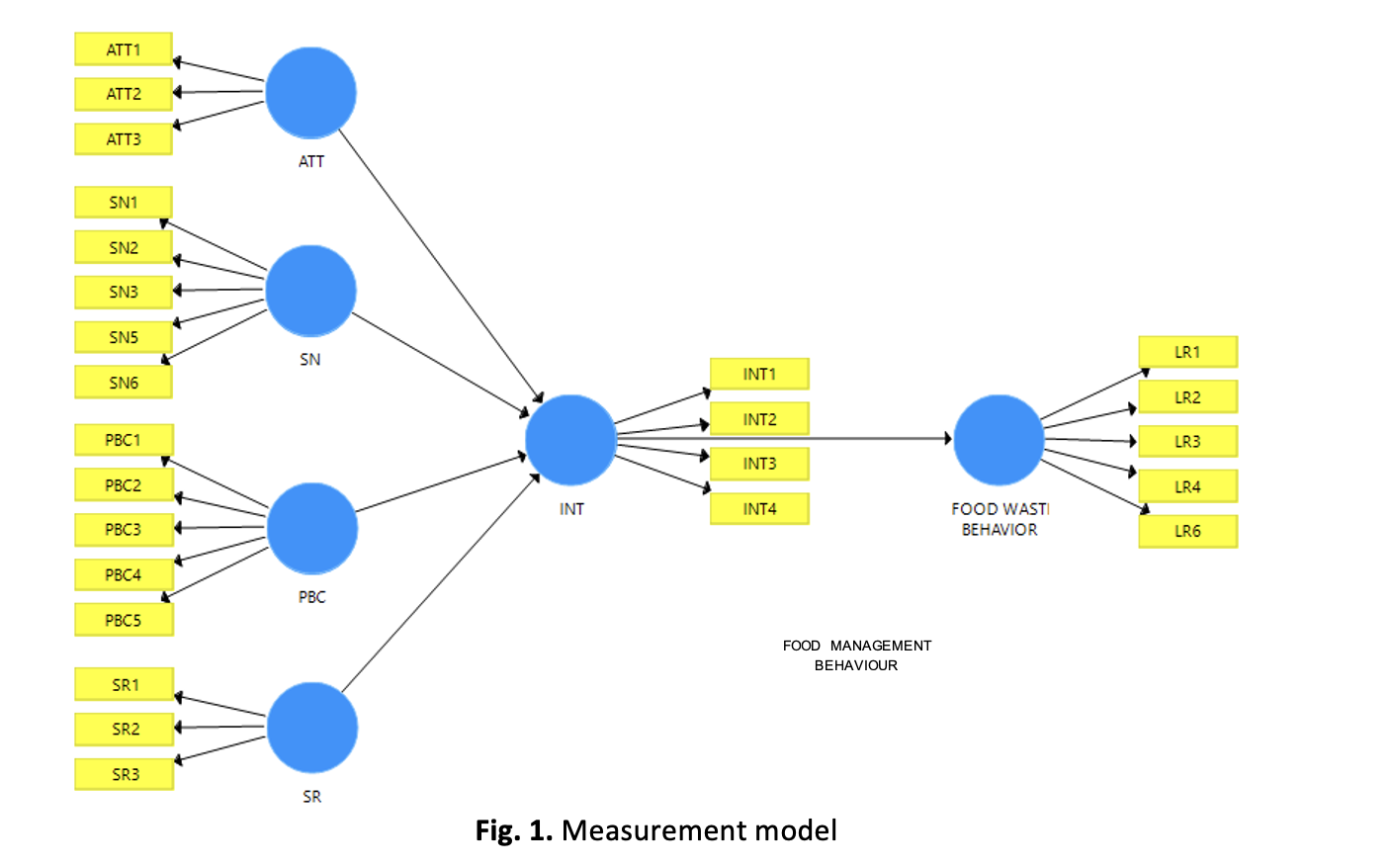Exploring the Influential Factors Shaping Household Food Waste Management Behaviour
DOI:
https://doi.org/10.37934/ard.140.1.161175Keywords:
Food waste, food management, household, behaviourAbstract
Food waste management within households is a global issue with significant economic, environmental, and social implications. Food waste has been a worldwide concern for several decades, but this problem is relatively new in Malaysia context due to increasing amount of food waste in recent years especially among household. Despite its importance, there is a gap in understanding the specific factors influencing food wasting behaviour among households, particularly in the context of Malaysia. Therefore, this study aims to investigate the variables affecting food wasting behaviour among households. This study employed a purposive sampling technique with a correlational cross-sectional research design. The data utilized to empirically assess the suggested model, an extension of the Theory of Planned Behaviour, was collected through an online survey among households in Malaysia. Smart partial least squares were used to analyse 300 participants. The findings revealed that attitude, subjective norms, perceived behaviour control, and shopping routine are positively associated with the intention to manage food waste, while the intention to manage food waste was positively related to food management behaviour. Additionally, intention successfully mediates the relationship between attitude, subjective norms, and perceived behaviour control; however, intention does not mediate the relationship between shopping routine and food management behaviour. To enhance food management behaviour among households, it might be necessary for relevant authorities to increase campaigns and awareness related to food waste management.
Downloads























